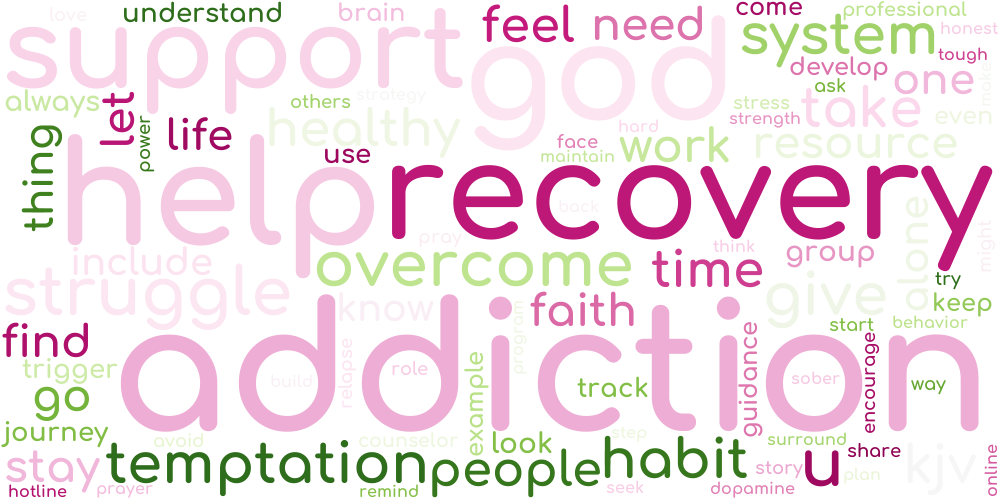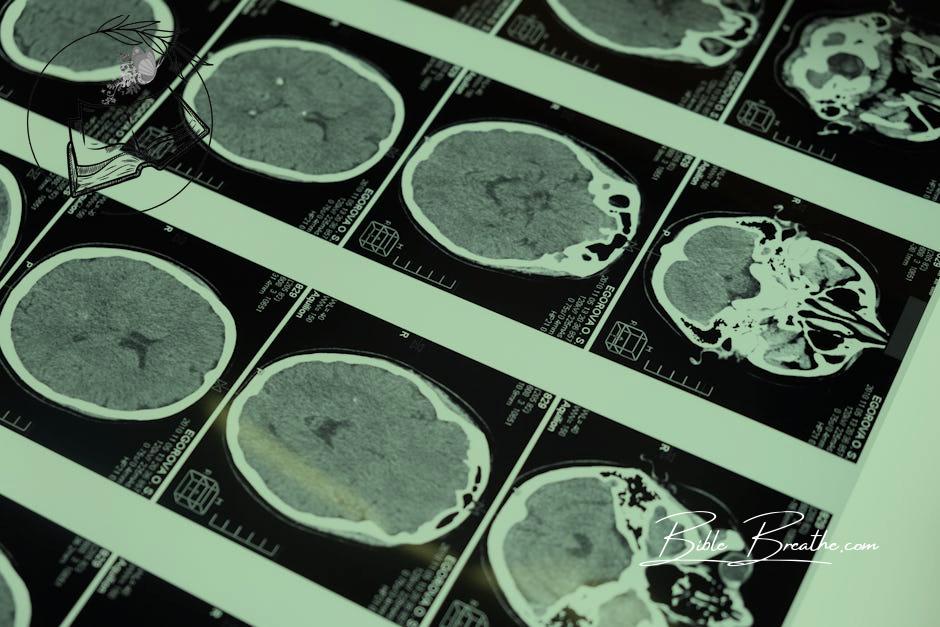Key Takeaways
- The Bible teaches that addiction is a form of bondage, and that God is the ultimate source of freedom and healing (Galatians 5:1, 2 Corinthians 3:17).
- The apostle Paul wrote about the struggle with sin and addiction in Romans 7:14-25, and how it can only be overcome through the power of God.
- Jesus taught that true freedom comes from knowing the truth, and that He is the truth (John 8:32, 14:6).
- The Bible encourages believers to seek help and support from others, such as the church community, to overcome addiction (Galatians 6:2, Hebrews 10:24-25).
- The 12-step program, commonly used in addiction recovery, has its roots in Christian principles and can be a helpful tool for overcoming addiction with God’s help.
- Psalm 107:20 says, “He sent out his word and healed them, and delivered them from their destructions.” God’s word has the power to heal and deliver us from addiction. Christianity and addiction
Introduction
Explanation of the Topic and Its Significance
Let’s face it – addiction is a tough battle. Whether it’s substance abuse, a bad habit, or an unhealthy behavior, it can feel like an impossible mountain to climb. But here’s the thing: God is bigger than any addiction. With His help, we can overcome even the toughest struggles.
Preview of Main Points
In this post, we’ll explore how to overcome addiction with God’s help. We’ll talk about:
- The root causes of addiction and how God can help us address them
- Practical steps to take in our journey to recovery
- Biblical principles to guide us along the way
- Real-life examples of people who have overcome addiction with God’s help
| What We’ll Cover | Why It Matters |
|---|---|
| Root causes of addiction | Understanding why we’re struggling is key to overcoming it. |
| Practical steps to recovery | We need a plan to move forward, and God’s got one for us. |
| Biblical principles | God’s Word has the power to transform our lives and help us overcome addiction. |
As the Bible says, “I can do all things through Christ which strengtheneth me” (Philippians 4:13, KJV). With God on our side, we can overcome anything – including addiction.
To begin, here’s a word cloud that brings together the main concepts we’ll be discussing.
Word cloud by BibleBreathe.com about how to overcome addiction with god
Understanding Addiction
Photo modified by BibleBreathe.com. Original photo by cottonbro studio on Pexels
Definition and Causes of Addiction
Let’s get real about addiction.
It’s not just about someone being “weak” or “messed up.” Addiction is a complex issue that affects people from all walks of life.
So, what is addiction, exactly?
| Definition | Explanation |
|---|---|
| A chronic disease | Addiction is a long-term condition that affects the brain and body. |
| Characterized by compulsive behavior | People struggling with addiction often feel like they can’t control their actions. |
As for the causes of addiction, there’s no one-size-fits-all answer.
Some common factors include:
- Genetics: Addiction can run in families.
- Environment: Trauma, stress, and peer pressure can all contribute to addiction.
- Brain chemistry: Imbalances in neurotransmitters like dopamine and serotonin can play a role.
Common Types of Addictions
We often think of addiction in terms of substances like drugs and alcohol.
But addiction can take many forms, including:
- Behavioral addictions: Things like gambling, sex, and internet addiction.
- Food addiction: Struggling with disordered eating or compulsive eating.
- Work addiction: When work becomes an all-consuming force in our lives.
Know this, my beloved brethren. Let every man be swift to hear, slow to speak, slow to wrath.” (James 1:19, KJV)
As Christians, we know that God is always with us, even in the midst of struggle.
The Role of the Brain in Addiction
So, what’s going on in our brains when we’re struggling with addiction?
It all comes down to dopamine.
Dopamine is a neurotransmitter that helps us feel pleasure and reward.
When we engage in addictive behaviors, our brains release more dopamine, which can create a cycle of craving and dependence.
| Brain Region | Role in Addiction |
|---|---|
| Reward system | Releases dopamine, creating feelings of pleasure. |
| Stress system | Activated by stress, which can trigger addictive behaviors. |
By understanding how our brains work, we can better understand addiction and how to overcome it.
The Power of Faith
How Faith Can Help in Addiction Recovery
Let’s face it – addiction is a tough battle. But here’s the thing: faith can be a game-changer. When we’re struggling with addiction, it’s easy to feel like we’re all alone, like we’re stuck in this dark hole with no way out. But the truth is, God is always with us, even when we don’t feel like it.
| Struggle | How Faith Can Help |
|---|---|
| Feeling trapped | Faith reminds us that God is our way out (Psalm 107:13-14, KJV). |
| Lack of motivation | Faith gives us the strength to keep going, even when we don’t feel like it (Philippians 4:13, KJV). |
Biblical Examples of Overcoming Addiction
The Bible is full of stories of people who struggled with addiction and found freedom through faith. Take the story of the woman at the well (John 4:1-42, KJV), for example. She was stuck in a cycle of addiction and shame, but when she met Jesus, everything changed. He offered her living water, and she never looked back.
Or take the story of Paul (1 Corinthians 6:9-11, KJV). He was once a slave to his own desires, but when he met Jesus, he was set free. He went on to live a life of purpose and passion, and he never forgot where he came from.
The Role of Prayer and Meditation
So, how can we tap into this power of faith? Prayer and meditation are key. When we take time to connect with God, we’re reminded of His love and power. We’re reminded that we’re not alone, and that He’s always with us.
Here are three ways to make prayer and meditation a part of your daily routine:
- Start small: Take just a few minutes each day to pray and meditate. You can use a devotional or simply talk to God from your heart.
- Be consistent: Try to pray and meditate at the same time each day, so it becomes a habit.
- Be honest: Don’t be afraid to share your struggles and fears with God. He’s not afraid of your mess, and He’s always willing to listen.
Come unto me, all ye that labour and are heavy laden, and I will give you rest.” (Matthew 11:28, KJV)
Building a Support System
Photo modified by BibleBreathe.com. Original photo by Helena Lopes on Pexels
The Importance of a Support System in Addiction Recovery
When it comes to overcoming addiction with God, having a support system is crucial.
Think of it like trying to hold water in your hands – it’s hard to do alone, but with a container (or a support system), it’s much easier.
A support system can help you stay accountable, motivated, and encouraged throughout your recovery journey.
God is always with us, but having people who care about us and can offer practical help can make a huge difference.
| Benefits of a Support System | How it Helps in Addiction Recovery |
|---|---|
| Emotional support | Helps you feel less alone and more motivated |
| Practical help | Assists with daily tasks and responsibilities |
How to Build a Support System with God and Others
So, how do you build a support system that includes God and others?
Here are some steps you can take:
- Pray for guidance: Ask God to lead you to people who can support you in your recovery.
- Join a community: Look for a church, support group, or online community that shares your values and can offer encouragement.
- Reach out to friends and family: Let them know how they can support you in your recovery journey.
Remember, building a support system takes time and effort, but it’s worth it in the end.
Real-Life Stories of Successful Support Systems
Let’s look at some real-life examples of successful support systems:
- A loved one’s encouragement: “My wife was my rock throughout my recovery. She encouraged me to keep going, even when I felt like giving up.
- A support group’s camaraderie: “Being part of a support group helped me feel less alone in my struggles. We all supported each other and celebrated our successes.”
- God’s constant presence: “I knew God was always with me, even when I felt like I was at my lowest. That gave me the strength to keep going.”
As the Bible says, “Bear ye one another’s burdens, and so fulfil the law of Christ.” (Galatians 6:2, KJV)
Developing Healthy Habits
The Importance of Healthy Habits in Addiction Recovery
When it comes to overcoming addiction with God, developing healthy habits is crucial. Think of it like this: when you’re trying to quit a bad habit, you can’t just take something away without replacing it with something better. It’s like trying to fill a void with nothing – it just won’t work.
| Why Healthy Habits Matter | What Happens Without Them |
|---|---|
| Replace old habits with new ones | Falling back into old patterns |
| Build self-discipline and self-control | Losing motivation and giving up |
How to Develop Healthy Habits with God’s Guidance
So, how do we develop these healthy habits with God’s guidance? Here are some tips:
- Start small: Don’t try to change everything at once. Start with one or two habits you want to work on, and build from there.
- Find accountability: Share your struggles and goals with a trusted friend or mentor, and ask them to hold you accountable.
- Seek God’s guidance: Pray for wisdom and guidance as you work on developing healthy habits. Ask God to help you stay on track and give you the strength you need.
Examples of Healthy Habits for Addiction Recovery
Here are some examples of healthy habits that can help with addiction recovery:
- Exercise: Regular exercise can help reduce stress and anxiety, and improve mood.
- Journaling: Writing down your thoughts and feelings can help you process and release emotions, and gain clarity on your struggles.
- Meditation and prayer: Taking time to quiet your mind and focus on God can help you stay grounded and centered.
For God hath not given us the spirit of fear; but of power, and of love, and of a sound mind.” (2 Timothy 1:7, KJV)
By developing healthy habits with God’s guidance, we can overcome addiction and live a more balanced, fulfilling life.
Overcoming Temptation
Photo modified by BibleBreathe.com. Original photo by Pixabay on Pexels
Understanding Temptation and Its Role in Addiction
Let’s face it – temptation is a sneaky thing. It can creep up on us when we least expect it, and before we know it, we’re stuck in a cycle of addiction. But here’s the thing: temptation is not the same as sin. We can be tempted without giving in to sin.
God knows we’re going to face temptation, and He’s given us some powerful tools to overcome it. But first, we need to understand what temptation is and how it works.
| Temptation Myth | Reality |
|---|---|
| Temptation is a sin | Temptation is a natural part of life, but giving in to it is what leads to sin. |
| We can avoid temptation | Temptation is inevitable, but we can learn to resist it. |
How to Overcome Temptation with God’s Help
So, how do we overcome temptation with God’s help? Here are three key strategies:
- Pray for strength: When we’re tempted, we can cry out to God for help. He’s always listening, and He’s always willing to give us the strength we need to resist temptation.
- Use Scripture to combat lies: When we’re tempted, Satan often uses lies to deceive us. But we can use Scripture to combat those lies and remind ourselves of God’s truth.
- Find healthy alternatives: Sometimes, we give in to temptation because we’re bored or looking for a way to cope with stress. But we can find healthy alternatives to temptation, like exercise, hobbies, or spending time with friends.
Strategies for Avoiding Triggers and Staying on Track
Let’s be real – avoiding triggers is hard. But it’s not impossible. Here are three strategies for avoiding triggers and staying on track:
- Identify your triggers: Take some time to reflect on what triggers your addiction. Is it stress? Boredom? Certain people or places? Once you know what your triggers are, you can develop a plan to avoid them.
- Create a support system: Surround yourself with people who support and encourage you. Having a strong support system can make all the difference in staying on track.
- Celebrate small wins: Celebrating small wins can help you stay motivated and encouraged. Don’t be too hard on yourself if you slip up – just get back on track and keep moving forward.
For God hath not given us the spirit of fear; but of power, and of love, and of a sound mind.” (2 Timothy 1:7, KJV)
The Role of Professional Help
When to Seek Professional Help for Addiction Recovery
Let’s face it – addiction is a tough battle to fight alone.
Sometimes, we need a little extra help to overcome our struggles.
But when do we know it’s time to seek professional help?
Here are some signs that it might be time to reach out:
- You’ve tried to quit on your own, but can’t seem to shake the habit.
- Your addiction is affecting your relationships, work, or daily life.
- You’re experiencing withdrawal symptoms or physical health problems.
If any of these sound familiar, it might be time to consider seeking professional help.
How to Find a Qualified Addiction Counselor
So, where do you start looking for a qualified addiction counselor?
Here are some tips to help you find the right person:
- Ask for referrals from your doctor, therapist, or support group.
- Check with your insurance provider to see who’s covered.
- Look for counselors who specialize in addiction recovery.
| What to Look for in a Counselor | Why It’s Important |
|---|---|
| Experience working with addiction | They’ll understand your struggles and know how to help. |
| A non-judgmental attitude | You’ll feel safe sharing your story and struggles. |
The Benefits of Combining Professional Help with Faith-Based Recovery
So, why combine professional help with faith-based recovery?
Here are just a few benefits:
- A holistic approach to recovery: You’ll be addressing your physical, emotional, and spiritual needs.
- A supportive community: You’ll be surrounded by people who understand your struggles and can offer support.
- A deeper sense of purpose and meaning: You’ll be able to connect your recovery to your faith and find a sense of purpose.
Come unto me, all ye that labour and are heavy laden, and I will give you rest.” (Matthew 11:28, KJV)
By combining professional help with faith-based recovery, you’ll be able to find the support and guidance you need to overcome your addiction and live a more fulfilling life.
Maintaining Recovery
Photo modified by BibleBreathe.com. Original photo by RUN 4 FFWPU on Pexels
The Importance of Maintaining Recovery
Let’s face it, overcoming addiction is just the beginning.
It’s like running a marathon – you’ve got to pace yourself and keep going, even when it gets tough.
Maintaining recovery is just as important as getting sober in the first place.
Think about it: when you’re in recovery, you’re not just fighting against your addiction – you’re fighting for your life.
| Why Maintaining Recovery Matters | What Happens If You Don’t |
|---|---|
| You’ll stay sober and healthy | You might relapse and lose progress |
| You’ll build stronger relationships | You might damage relationships with loved ones |
Strategies for Staying Sober and Healthy
So, how do you maintain recovery?
Here are some strategies that might help:
- Find a supportive community: Surround yourself with people who get it – people who are going through the same thing.
- Get accountability: Find someone who’ll keep you on track and encourage you to stay sober.
- Take care of your physical health: Exercise, eat well, and get enough sleep. It’s hard to stay sober when you’re feeling crummy.
- Practice self-care: Do things that bring you joy and help you relax, like reading, hiking, or painting.
Come unto me, all ye that labour and are heavy laden, and I will give you rest.” (Matthew 11:28, KJV)
How to Handle Relapses and Setbacks
Let’s be real – relapses happen.
It’s not the end of the world, but it can feel like it.
Here’s the thing: relapse is not failure.
It’s just a setback – a chance to learn and grow.
So, what do you do if you relapse?
- Don’t beat yourself up: It’s okay to make mistakes.
- Get back on track: Reach out to your support system and get back to your recovery plan.
- Learn from your mistakes: Figure out what triggered your relapse and make a plan to avoid it next time.
“For a just man falleth seven times, and riseth up again: but the wicked shall fall into mischief.” (Proverbs 24:16, KJV)
Resources for Addiction Recovery
List of Helpful Resources for Addiction Recovery
Recovering from addiction is a tough journey, but you don’t have to do it alone. There are many resources available to support you along the way. Here are some helpful ones:
- Bible-based recovery programs: These programs use scripture and biblical principles to help you overcome addiction. Some popular ones include Celebrate Recovery and Overcomers Outreach.
- Support groups: Joining a support group can connect you with others who are going through similar struggles. You can find support groups at your local church or online.
- Counseling: Working with a counselor can help you identify underlying issues that may be contributing to your addiction. Look for a counselor who is experienced in addiction recovery and shares your Christian values.
- Online resources: There are many online resources available, including articles, videos, and podcasts. Some popular websites include Addiction Hope and Recovery.org.
- Hotlines: If you’re struggling with addiction and need immediate support, you can call a hotline. Some popular hotlines include the National Helpline (1-800-662-HELP) and the Addiction Hope hotline (1-855-653-7293).
How to Use These Resources to Support Your Recovery Journey
So, how can you use these resources to support your recovery journey? Here are some tips:
- Start with prayer: Before you start using any of these resources, take some time to pray. Ask God to guide you and give you wisdom as you seek help.
- Be honest with yourself: Be honest about your struggles and your needs. Don’t be afraid to ask for help when you need it.
- Take it one step at a time: Recovery is a journey, not a destination. Take it one step at a time, and don’t be too hard on yourself if you slip up.
- Surround yourself with support: Surround yourself with people who support and encourage you. This can include friends, family members, and support groups.
| Resource | How to Use It |
|---|---|
| Bible-based recovery programs | Attend meetings regularly, work through the program materials, and connect with others who are going through the program. |
| Support groups | Attend meetings regularly, share your story, and listen to others who are going through similar struggles. |
| Counseling | Schedule regular sessions, be honest with your counselor, and work through the issues that are contributing to your addiction. |
| Online resources | Read articles, watch videos, and listen to podcasts. Take notes and apply what you learn to your life. |
For I know the thoughts that I think toward you, saith the Lord, thoughts of peace, and not of evil, to give you an expected end.” (Jeremiah 29:11, KJV)
Frequently Asked Questions About How To Overcome Addiction With God
What Are the Benefits of Overcoming Addiction with God?
Overcoming addiction with God brings numerous benefits, including spiritual growth, freedom from bondage, and a deeper sense of purpose. It also fosters a stronger sense of self-worth, improved relationships, and a renewed sense of hope. Additionally, it can lead to physical and emotional healing, as well as a more fulfilling life.
What Are the Common Challenges Faced by People Trying to Overcome Addiction with God?
Common challenges include feeling ashamed or unworthy, struggling with self-doubt, and experiencing temptation. Others may face resistance from loved ones, feeling like they’re losing control, or battling underlying emotional issues. Some may also struggle with the idea of surrendering to a higher power or feeling like they’re not ‘good enough’ for God’s help.
What Are the Most Effective Strategies for Overcoming Addiction with God?
Effective strategies for overcoming addiction with God include surrendering to His power, seeking spiritual guidance, and surrounding yourself with a supportive community. Engage in prayer, meditation, and scripture study to strengthen your faith. Identify triggers, develop coping mechanisms, and celebrate small victories. Trust in God’s redemption and restoration, and remember that you’re not alone in the struggle.
{
“@context”: “https://schema.org”,
“@type”: “FAQPage”,
“mainEntity”: [
{
“@type”: “Question”,
“name”: “What Are the Benefits of Overcoming Addiction with God?”,
“acceptedAnswer”: {
“@type”: “Answer”,
“text”: “Overcoming addiction with God brings numerous benefits, including spiritual growth, freedom from bondage, and a deeper sense of purpose. It also fosters a stronger sense of self-worth, improved relationships, and a renewed sense of hope. Additionally, it can lead to physical and emotional healing, as well as a more fulfilling life.”
}
},
{
“@type”: “Question”,
“name”: “What Are the Common Challenges Faced by People Trying to Overcome Addiction with God?”,
“acceptedAnswer”: {
“@type”: “Answer”,
“text”: “Common challenges include feeling ashamed or unworthy, struggling with self-doubt, and experiencing temptation. Others may face resistance from loved ones, feeling like they’re losing control, or battling underlying emotional issues. Some may also struggle with the idea of surrendering to a higher power or feeling like they’re not ‘good enough’ for God’s help.”
}
},
{
“@type”: “Question”,
“name”: “What Are the Most Effective Strategies for Overcoming Addiction with God?”,
“acceptedAnswer”: {
“@type”: “Answer”,
“text”: “Effective strategies for overcoming addiction with God include surrendering to His power, seeking spiritual guidance, and surrounding yourself with a supportive community. Engage in prayer, meditation, and scripture study to strengthen your faith. Identify triggers, develop coping mechanisms, and celebrate small victories. Trust in God’s redemption and restoration, and remember that you’re not alone in the struggle.”
}
}
]
}






